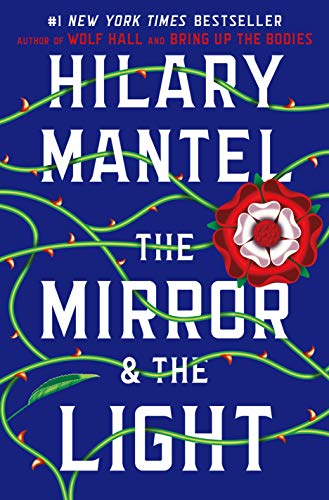The Mirror & the Light (Wolf Hall Trilogy 3)
Following Anne Boleyn’s beheading in May 1536, chief councillor Thomas Cromwell’s star has never shone brighter in Henry VIII’s eyes. But Henry, as Cromwell knows better than anyone, is nothing if not mercurial. His Majesty’s childish temper threatens to undo sound governance, while the wrong word can cost you your life. So though the king has just gotten rid of an unwanted wife and married another, troubles emerge daily, each a chance for Cromwell to fail.
But The Mirror & the Light, the third, triumphant volume in the Cromwell trilogy, involves far more than a throne in peril or a councillor equally skilled at governing and flattering His Majesty into believing that the royal self is responsible. Mantel has thought deeply about power and cast the king-councillor relationship as a matter of preserving England from disaster while welcoming necessary reforms.
Yet Cromwell remains a man of his time, willing to use force if he can’t persuade; and when he can’t influence Henry’s more odious whims, he fulfils them to the letter. As with anyone else, power seduces him, much as he tries to resist. In a brilliant stroke, Mantel shows how Cromwell learned power (and to live by his wits) as the son of a violent, abusive Putney blacksmith. However high he rises, he’s still that striving, mistrustful, hard-edged boy.
Readers of the previous two volumes may be pleased to hear that the author has taken greater care to identify the ubiquitous he that refers throughout to her protagonist. Occasionally, you hit bumps, most notably when Cromwell reminisces to himself, but you can’t stay lost for long. Not only is The Mirror & the Light an engrossing, beautifully written portrait of a man and an era, it’s one of the most compelling novels I’ve ever read.










